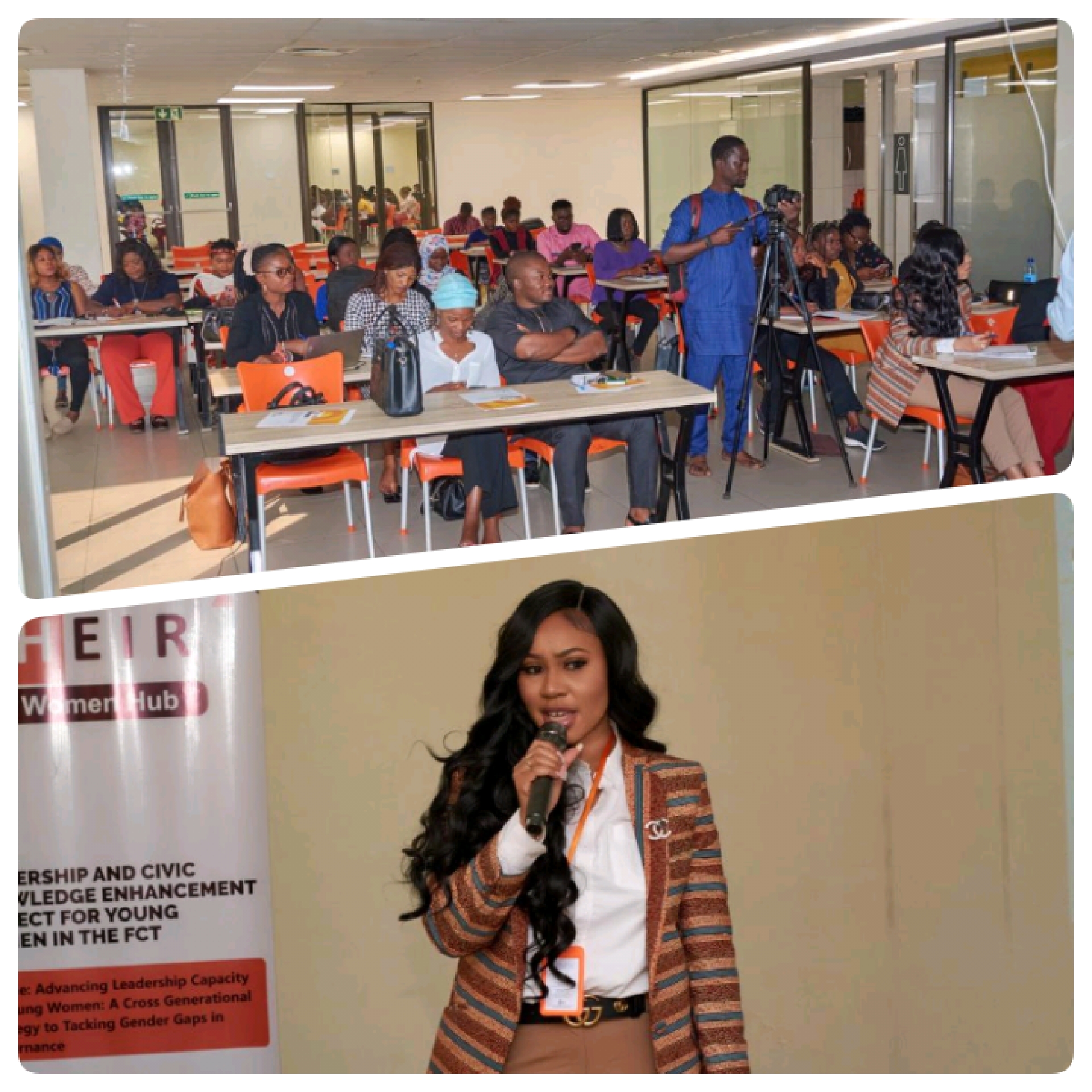HEIR Women Development, a Non-Governmental Organization (NGO) and Social Enterprise has emphasized the need for girls and young women to participate in leadership positions from earlystagesoftheir lives, stressing that this will enable them to build capacity and make them available to succeed the older generation of women leaders.
Its Executive Director Añuli Aniebo Ola-Olaniyi stated this in Abuja during a Leadership Capacity and Civic Knowledge Enhancement Conference for young women held on the hashtags #TheNigeriaWeWant #YoungWomen #Leadership.
Ola-Olaniyi charged the young women to participate fully in the general elections by ensuring that they collect their PVC’s, and also vote for the right candidate, stressing that these are leadership qualities.
She noted that the global percentage of women participation in leadership is set at 22.5% and around 23.4% in Africa, lamenting the low percentage of women’s representation despite their high population.
“The National average of women’s participation in governance in Nigeria is set at 6.7 despite women accounting for 49.4% of the total population with the mean age of women involved in political process set at 55years.
“Is there a place for young women? Apart from the abnormal numbers of women in leadership positions in our country, we wanted to address the root cause and that’s why we are training and encouraging girls to take up leadership positions,” she said.
‘’Girls and young women need to know that a leader is not just a man, a leader is a leader so we are re-educating and helping them to unlearn the social norm that women are not supposed to be leaders.
“Elections are coming up shortly and as we talk about leadership enhancement for young women, we also want to tell them to be able to take a decision, perform their civil responsibilities and cast their votes .
” If you have leadership skills you should be able to make the right choice on who to choose as a leader,” she said.
The Executive Director further urged the young women to leverage the media in having inclusive conversations, and to their advantage, maintaining that people need to identify the women with capacity, confidence and character that are able to change the narrative.
“Girls no longer see role models because they don’t see any young women in leadership positions but we want to change that narrative so that when they look at us they see more young women in leadership and be encouraged, so more policies need to be in place to enhance this.
“Young women must wake up to understand that the country is also theirs and know that the script we see is not the entire story, and they also need to move from entitlement mentality and begin to develop themselves so that when the older women want to pass the baton, we would be available to receive and run along with it,” she urged.
Earlier, a Development Journalist Ene Oshaba, stressed the importance of leveraging the media for increased female participation in Leadership, urging women to be more visible in the media space to enable people to have a track record of their capacity and capacity in order to have confidence to vote them into leadership positions.
“Women are doing a lot in the society but are not leveraging the media and if people are not seeing or hearing about you how can they vote for someone they don’t know?
“Women must understand the importance of media and begin to be more visible and make impacts not just posting pictures but also have important messages to show they are also knowledgeable, ” she urged.
Meanwhile, a Student Union Leader Modupe Adetiba, said grooming of young women for leadership early needed to be intensified if women must be seen occupying leadership positions.
“If we are talking about strategic positioning of young women in politics, we need to go back to the drawing board to start from grooming them to take up leadership from school and other places while young in order to start building capacity from early stages of life.

